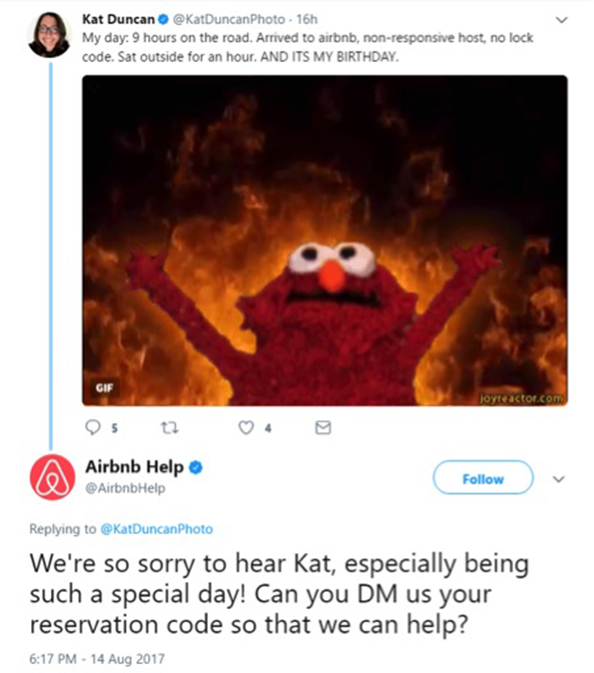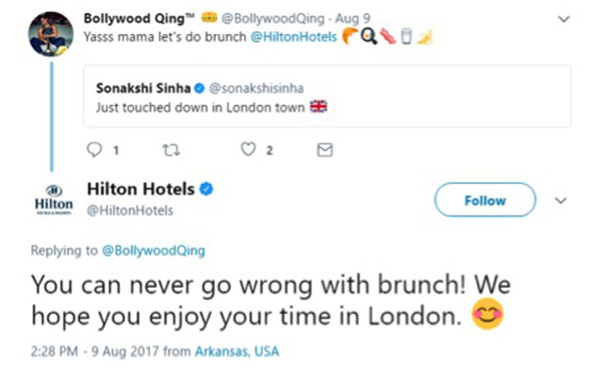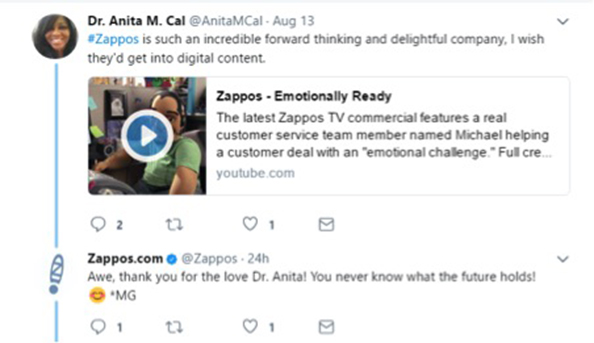Social media listening can have a monumental effect on your business – garnering customer insights and improving engagement, building brand loyalty and, thereby, increasing revenue. Learn how and why to do it well:
Social listening involves utilising social media to listen to conversations that are relevant to your business. It includes gathering as much information as possible on what people are saying about your brand, products or even the entire industry. In other words, social listening tries to gauge the ongoing sentiment: how do customers feel about a particular product or campaign?
The insight that you gain during the process can help you find patterns and actionable data that can be analysed and used to boost your marketing campaigns. As a result, you can improve engagement with your customers, build brand loyalty and, ultimately, increase your revenue.
Here are five ways your business can use social listening as a part of a successful social media strategy.
1. Delight your customers
Given that almost everyone with access to the internet uses a social media platform of one kind or another, it stands to reason that companies use them to provide customer service.
Almost half your customers will try to reach out to you through social media – and three out of five of those customers expect you to reply to their questions in less than an hour. To stress the importance of prompt responses, excellent customer care can encourage more than three-quarters of your customer base to recommend you to others.
Keeping this in mind, you can use social media to solve your customers’ problems even before they come to you; a question doesn’t have to be directed at you for you to offer a helpful answer. The only important caveat for you to remember is that your goal is not to push your products, but to assist your clients to the best of your capabilities.
You can start by listening to what your customers have to say about your brand and your products/services. However, it’s important to remember that 97% of tweets that discuss a brand don’t use the brand’s handle. So, when you listen to conversations happening about you, you’re not only listening to people talking directly to you. Rather, you are listening to conversations between different individuals that somehow relate to your brand.
Therefore, you should track conversations that don’t include an @ symbol next to your brand name and the ones that mis-spell your name altogether. Bearing this in mind, you’ll find that tapping into any conversation that remotely relates to you offers an enormous wealth of data you would have missed otherwise.
Airbnb is a great example of a brand that monitors its mentions with its handles @Airbnb, @AirbnbHelp as well as brand mentions without the @ symbol.

This enabled Airbnb to reach out to a disgruntled customer and offer assistance even though the customer didn’t address the brand directly.
2. Gather feedback
Another excellent advantage offered by social listening is the amount of feedback you can collect. Picture this: you just spent money on a new marketing campaign and you want to know what part hit home and what missed. Thanks to social listening, you can receive real-time information and get a sense of what struck what kind of chords. Find out what part worked for you and what didn’t and then invest in the former.
Similarly, you can get honest opinions about new products, as well as suggestions for how to improve them. The trick here is to ask questions: try to know what your customers didn’t like and how you can remedy these problems. The ability to enhance products to suit customers’ needs is one of the main advantages of social media listening, according to 25% of companies already using it.
In addition to marketing campaigns and new products, social media listening gives you the ability to offer suggestions to your customers and see how those play out. An excellent case in point is how Hilton Hotels interacts with its customers online.

The brand listens to what people have to say about their experiences and shows appreciation with replies and retweets. Also, in the event that someone posts on social media asking for suggestions on where they should go for their next trip, the good people at Hilton offer a few suggestions of their own, accompanied with links to their destinations. Subsequently, they see how their recommendations fared and modulate accordingly.
3. Identify influencers
So far, we’ve discussed how you can use social media listening to better your interactions with your customers. However, you can go one level higher and choose the types of customers whom you’d like to build relationships with in the first place. This act of customer segmentation means you can target your most profitable niche, along with the optimal times to reach out. The main two categories worth mentioning are influencers and brand ambassadors.
Influencers can help make or break your campaigns, making them customers worth paying extra attention to. Additionally, their opinions tend to hold extra sway with their followers and this can play well for your business . . . or wreak havoc. To get a sense of how much their opinion matters, just listen to these two statistics: 71% of your customers depend on social media referrals to make a decision of whether to buy or not and 81% of users are influenced by their friends’ social media posts when making a purchase decision.
Therefore, you should aim at finding influencers with the highest number of followers and get them on your side. However, there are several other factors that you need to take into consideration besides number of followers, such as the type of interactions these influencers have with their followers, the amount of likes these influencers get relative to the size of their follower base, and the number of times their opinions are retweeted.
As for brand ambassadors and advocates, they form another very profitable niche. These are the people who are enamoured by your products and sing their praises at every opportunity. By collaborating with these individuals, you can capitalise on the existence of an entire niche of individuals who are more than happy to market your product in a way that would otherwise cost you a fortune. Moreover, your brand ambassadors can be one of the best routes for you for finding new leads. You see, apart from recommending your products to others, the same people would be elated at the thought of recommending some of their friends to you along with facilitating the whole interaction.
4. Track hashtags
Armed with the proper social listening tools, you can start observing how people perceive your business as well as your competitors’. You can also keep track of the conversations happening about your business, which will allow you to not only gauge the general sentiment, but to also have a feel for the keywords and associations revolving around your business.

Here’s an example of how Zappos tracks their brand hashtag and responds to their customer’s positive feedback.
When it comes to your competition, you should be aware at all times what they are up to. You need to find answers to several questions, including what new directions they are taking, what they are doing better than you and what you are doing better than them.
Over and above, you need to be conscious of your place in the market. The perception of your business in comparison to other businesses in the same industry is of the utmost importance. Needless to say, you should be aware of the difference between the positioning you wish for your business versus the actual positioning your customers ascribe to you.
On the other hand, your awareness of the current lingo surrounding your product can help you publish better content that can resonate with your customers. Moreover, you might come across a current concern developing within a specific customer segment, which can help your content become more relevant and topical; being current is always a huge plus because it conveys to the customer that you have their interests at heart, first and foremost.
5. Attract new customers
We’ve already mentioned one way you can garner new clientele: utilising the awesome power of brand advocates. All the same, there are still other ways a successful social listening strategy can help you widen the circle of people you serve.
The first thing you can do is the most basic: find individuals who express interest in your products and approach them. This can be facilitated by the use of hashtag and keyword trackers due to the fact that most potential customers will not mention your business by name. Instead, they’ll just shout out to the universe that they have a particular problem and, should you be paying close attention, you’ll be what the universe throws back at them!
But this is easier said than done, as you have to figure out what possible keywords or hashtags will likely be used by people looking for a product like yours. This can take a little brainstorming, a little research and a whole lot of experimentation to find what sticks.
Another way is to join normal conversations and try to be as helpful as possible. Be genuine and human and your customers will come to you. Earlier, I mentioned that you shouldn’t blindly push your products. Now, let’s add to that – you should actively have your customer’s best interest at heart and, should you believe that another product will satisfy a customer’s needs more than yours, say so. In the short term, this might look like it cost you a sale, but looking into the future, this will earn you the respect of your current customer base plus the trust of all potential future ones.
Final thoughts on social listening
Social media listening can have a monumental effect on your business. The benefits you can get from adding this valuable tool to your arsenal includes pleasing your customers, getting quick and accurate feedback, improving the quality of your interactions with your customers and so much more. Try it out for a set period of time and experience the benefits first-hand. Afterwards, you’ll be able to make a more informed decision on how beneficial social listening can be for your business.
Have an opinion on this article? Please join in the discussion: the GMA is a community of data driven marketers and YOUR opinion counts.
Read also:
Are stories and video storytelling the future of content marketing?
How luxury brands are mastering social content








Leave your thoughts